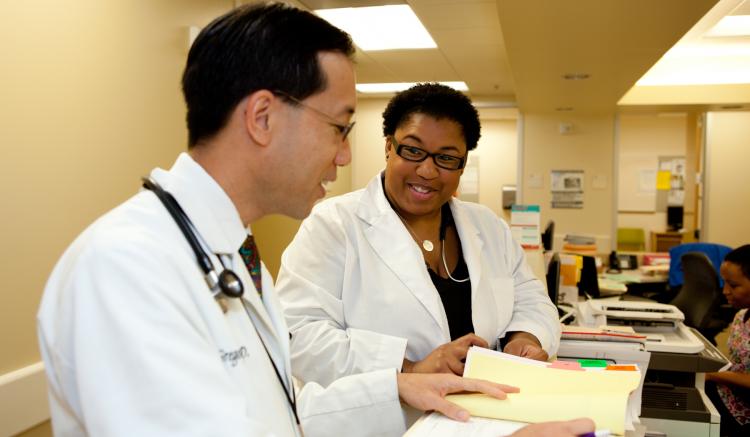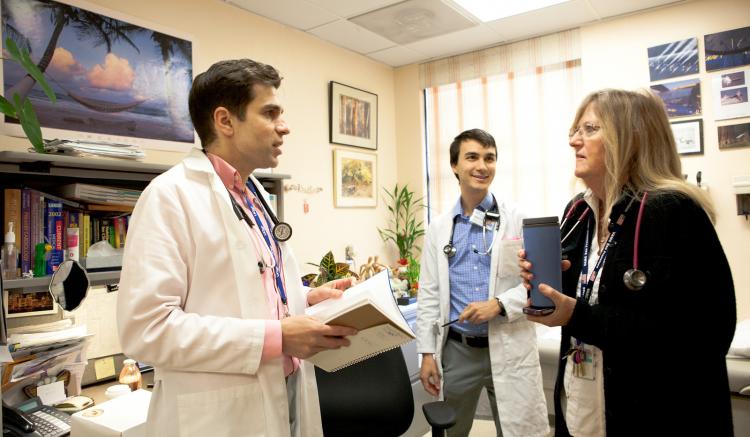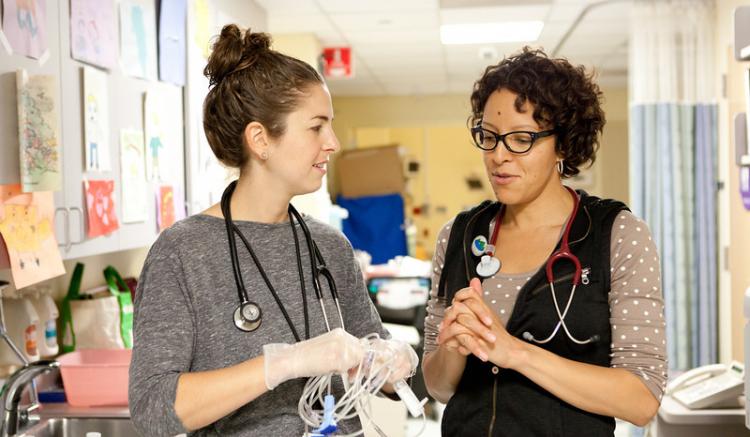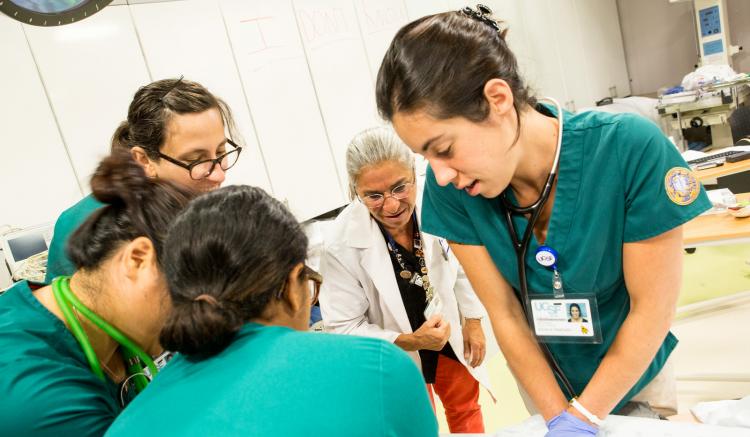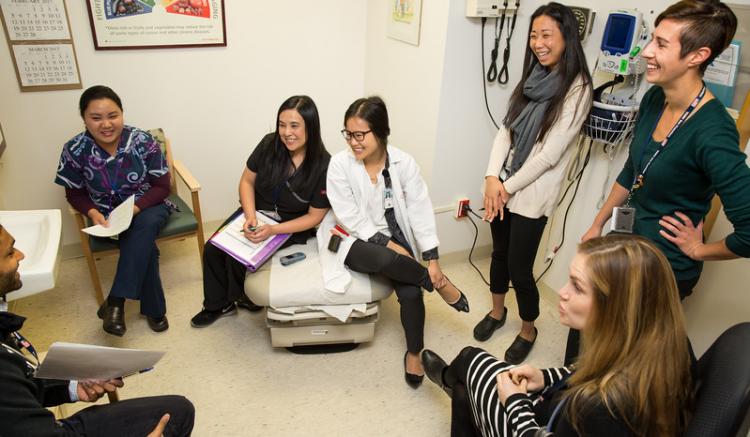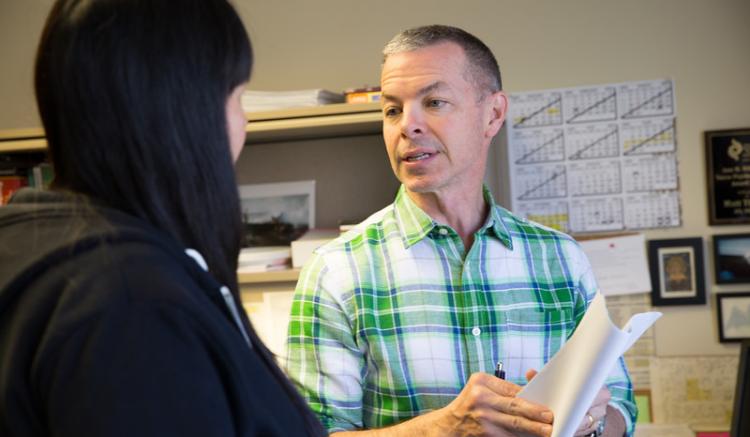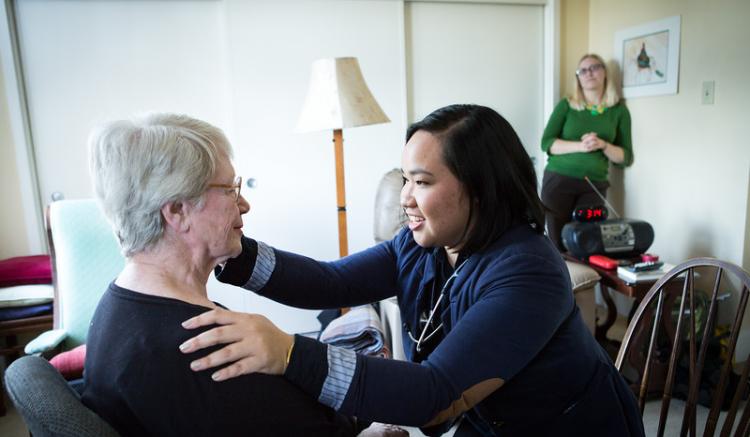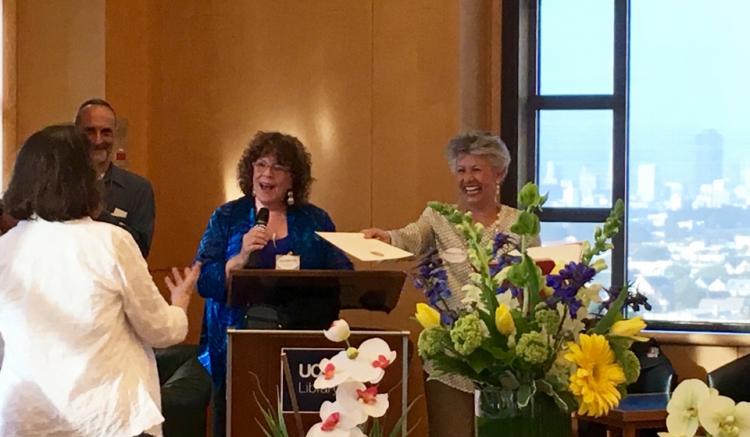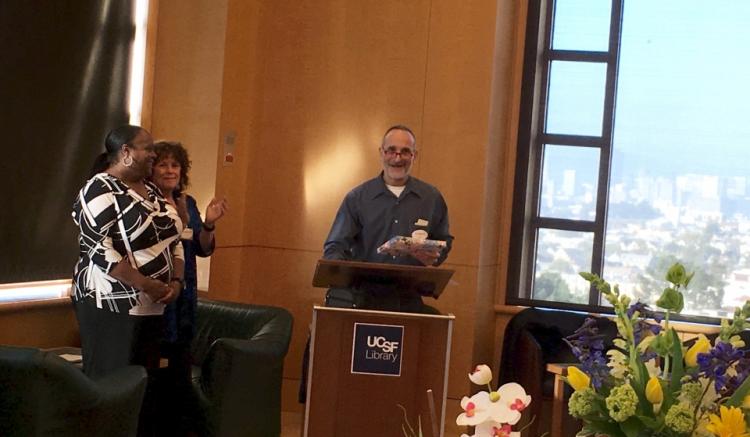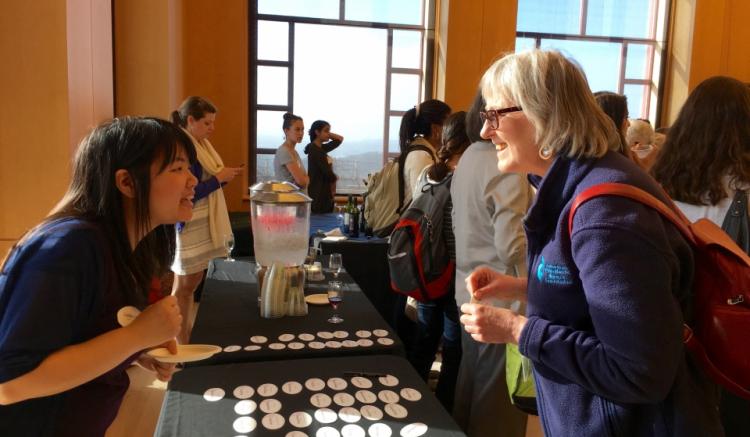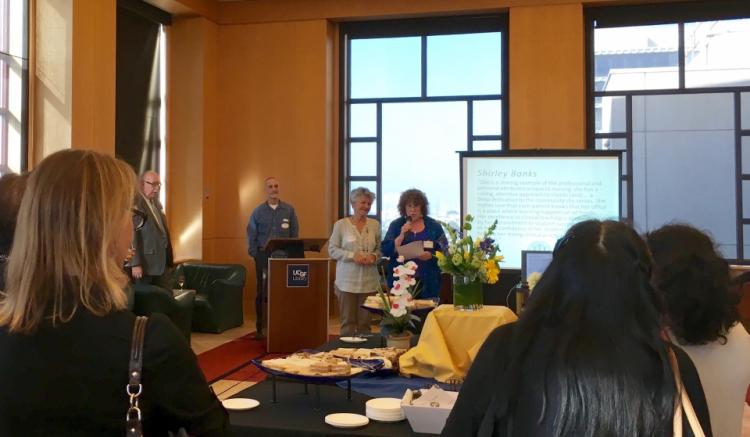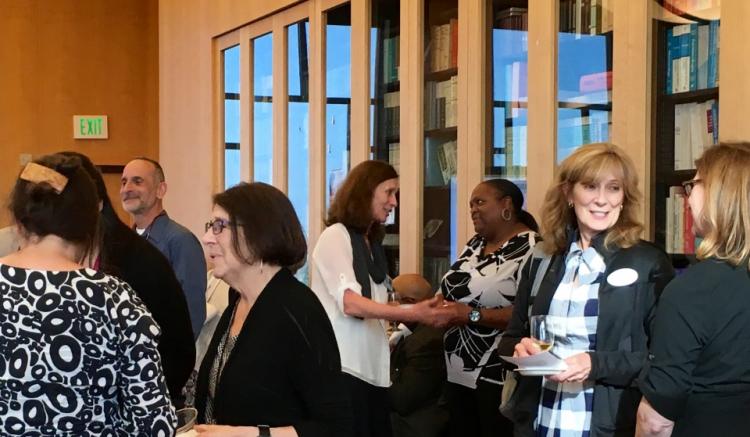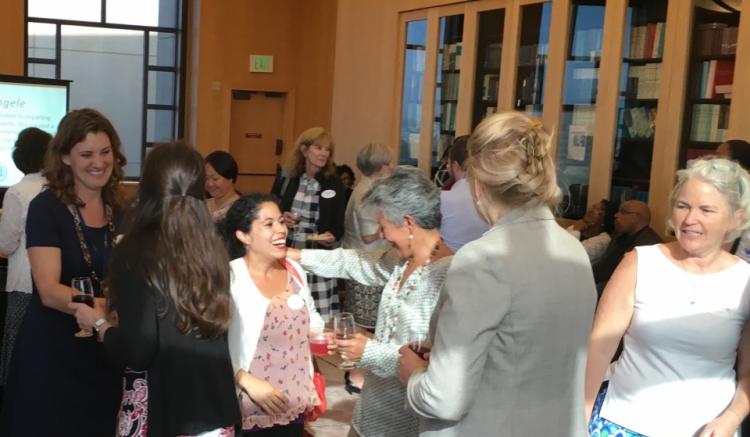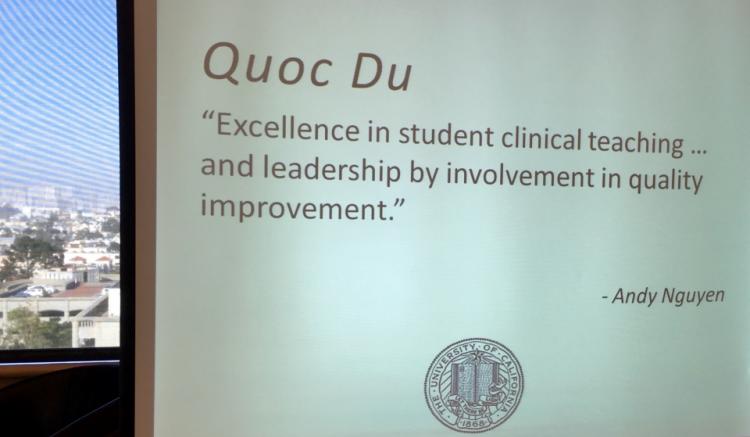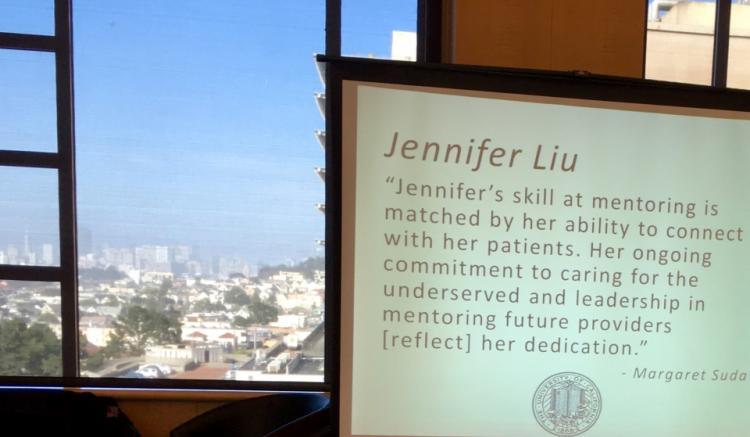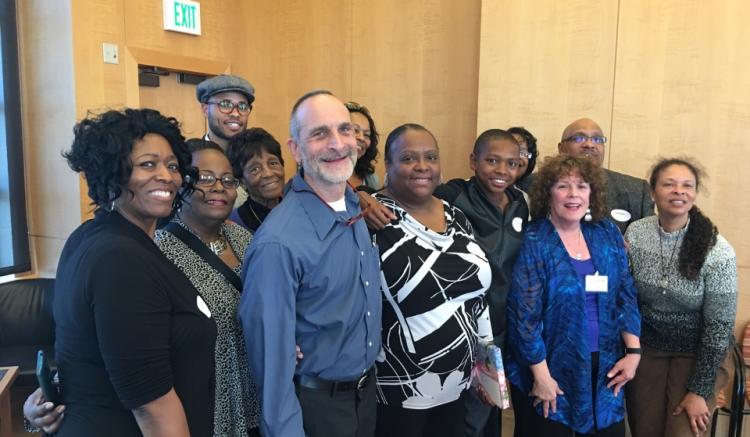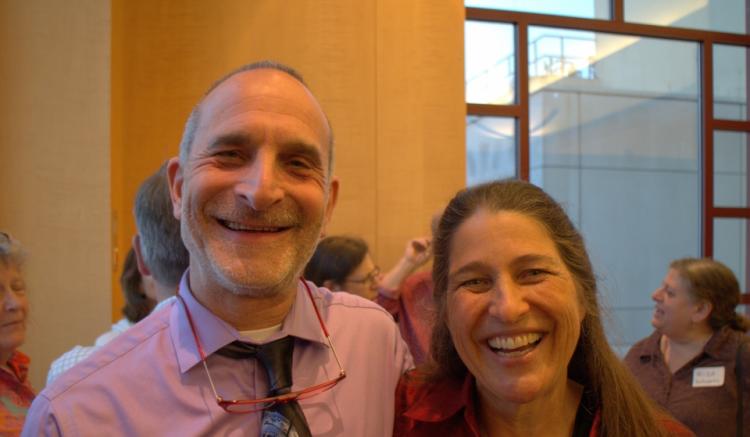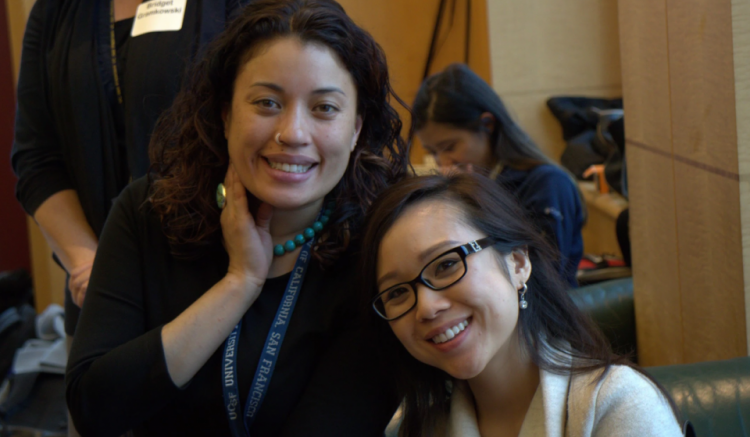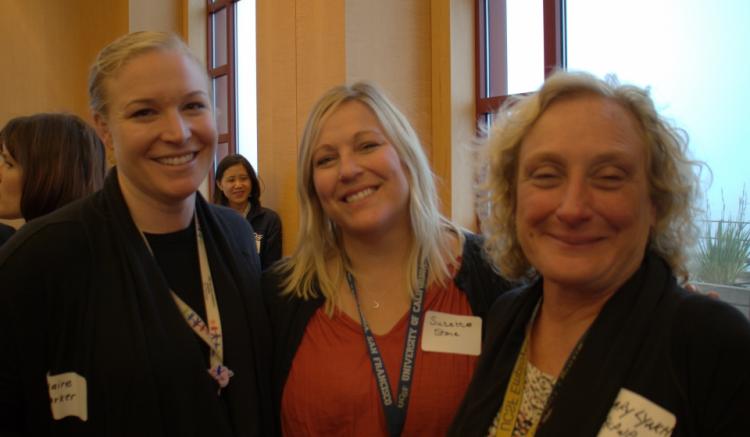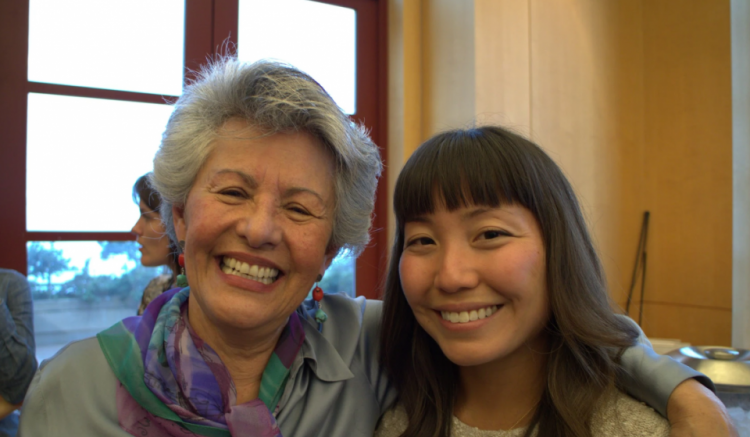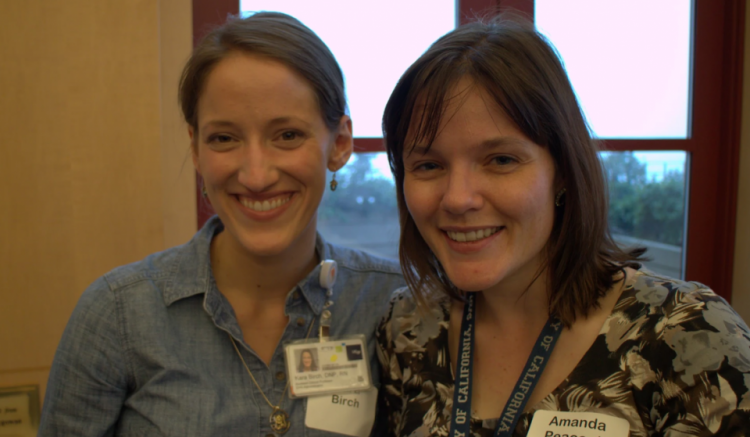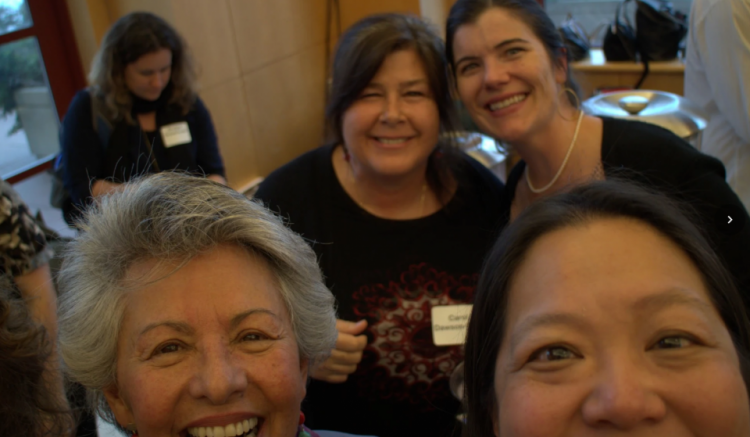Preceptors and volunteer clinical faculty offer students individual perspectives and hands-on experience in a variety of health care settings and specialties. The cumulative effect of what these volunteers impart plays a significant role in the care any health system delivers.
- Clinical preceptors are integral to the future of nursing.
- They volunteer their time and energy, using education and training in an effort to assure that the profession grows and thrives.
- They provide students with learning experiences that prepare them for the role of expert care provider.
- Preceptors can advance their career by becoming a UCSF volunteer faculty, participating in CE opportunities and collaborating in projects within the School of Nursing.
- For more information contact Rebekah Kaplan, RN, MSN, CNM
Preceptor Links
Preceptor Tool Box
New to clinical teaching? Looking for the latest resources? See our links below for more information.
Getting Started
- AANP toolkit This powerpoint from the American Academy of Nurse Practitioners details the benefits of being a preceptor, expectations, barriers, and strategies.
- Partnering in nurse practitioner education: Welcome to precepting FAQ This document from the National Organization of Nurse Practitioner Faculties (NONPF) answers many questions for first-time preceptors.
- Teaching in the Clinical Environment This document from the Association for Medical Education in Europe is full of information on role definition, theory, and strategies.
Examples
- NONPF video vignettes: These videos produced by the National Organization of Nurse Practitioner Faculties provide tips and examples of working with different types of learners in various settings.
- Providing feedback video: This video from the University of Wisconsin illustrates strategies to use when giving constructive feedback.
- Evaluation: Making it work This document shows why feedback and evaluation are so much more than “giving a grade.”
Resources
- Check out upcoming UCSF educational skills workshops and consider the Teach for UCSF Certificate Program. These workshops are tailored especially for health sciences educators, are free to our preceptors, and offer continuing education credits. If you are unable to attend a workshop, resources are still available to you through this website!
- Interested in getting feedback? Consider the Clinical Teaching Observation Program (TOP), a program for anyone that wants to improve their clinical teaching.
- Collaborative and Bidirectional Feedback Between Students and Clinical Preceptors: Promoting Effective Communication Skills on Health Care Teams. This article describes an initiative to introduce bidirectional feedback in a nurse midwifery program.
- Guidelines: the do’s, don’ts and don’t knows of feedback for clinical education. This article proposes guidelines for feedback in the clinical setting.
- The ART of Providing Effective Feedback. Pamphlet style document on the ART (ask, respond, tell) of providing feedback.
Keep checking back – we will be adding more resources in the future.
For more information contact Amanda Peacock, DNP, AGPCNP-C.
Preceptor CE Opportunities
All preceptors are invited to participate in our free educational skills workshops. You can receive CME/CEU credits and work towards a Teach for UCSF Certificate.
- UCSF Educational Skills Workshops - offered at multiple locations
- Teach for UCSF Certificate tracks:
- General Teaching
- Clinical Teaching
- Simulation Teaching
- Interprofessional Teaching
- Contact Angel Chen, RN, MSN, PNP to inquire about providing a workshop specifically for your site.
Helen Martin Preceptor Award
- History
- Past recipients
- Maureen Sheehan, RN, MSN, CPNP (2017)
- Shirley Banks, RN, MS, FNP (2016)
- Ann Reppun, MS, RN, ANP, WHNP (2015)
- Kathleen Ryan, RN, FNP (2014)
- Steve Leiner, MS, RN, FNP (2013)
- Laurie Galaty, MS, RN, CNM, NP (2013)
- Upcoming Reception – May 23, 2018 6:30-8:30 pm
For more information contact Rebekah Kaplan, RN, MSN, CNM
2017 Helen Martin Award recipient Maureen Sheehan's Acceptance Video

